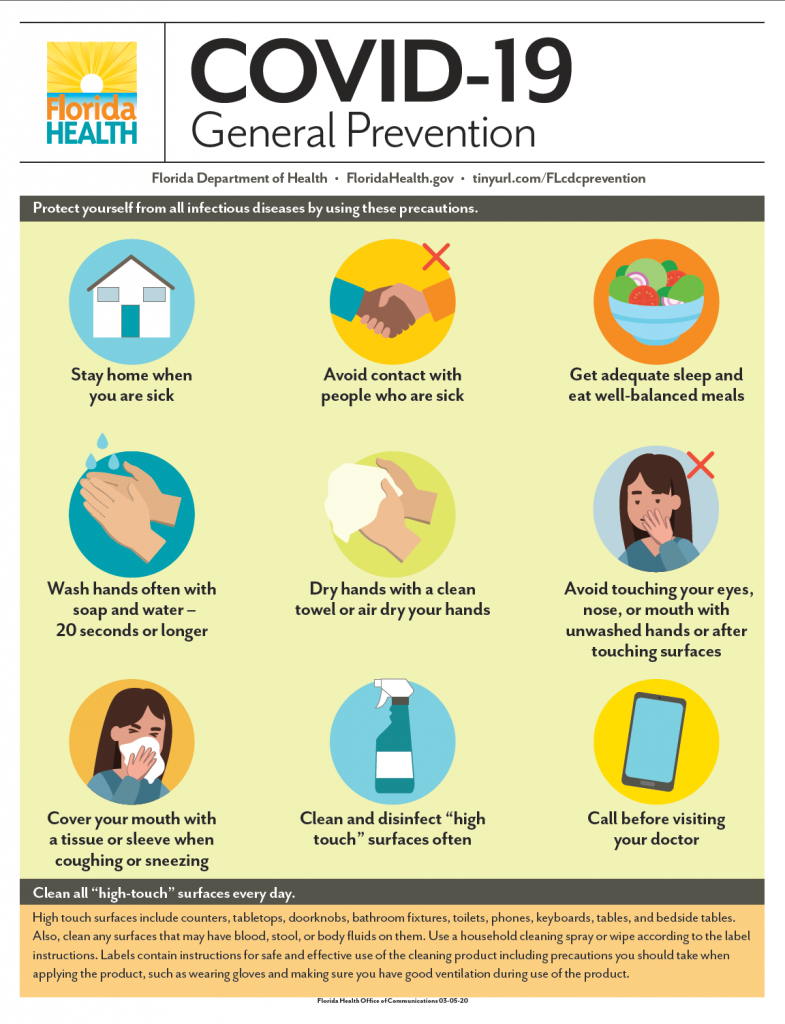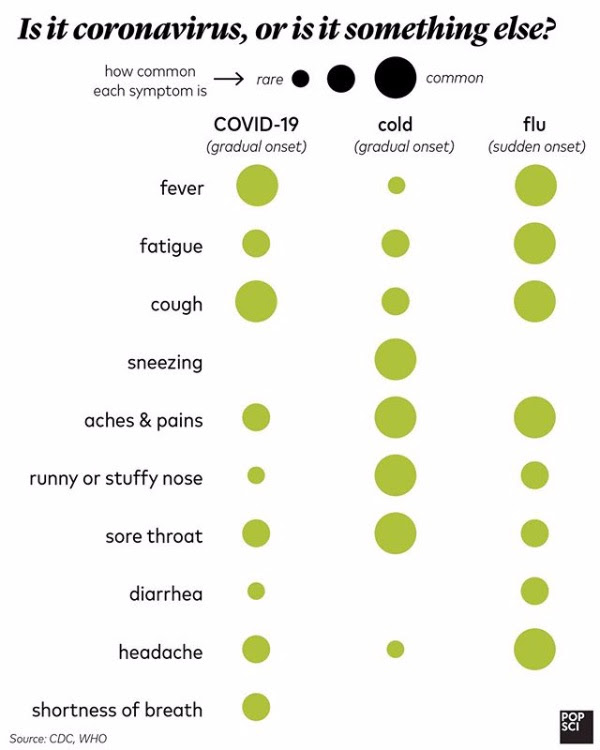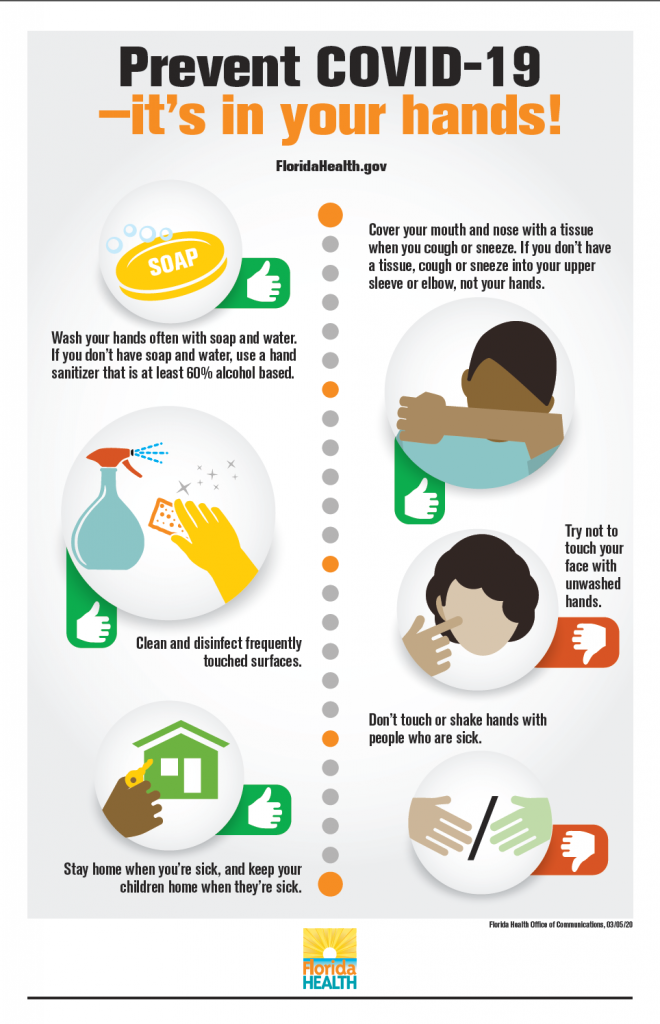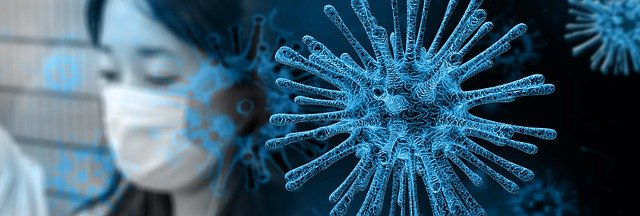I am now acutely aware of how many times that I touch my face, rub my eyes, itch my nose. Argh! These unconscious habits are hard to stop. I seem to only notice only after it is done. This is the first aggravating step of changing any behavior: noticing it (even if you can’t change it yet). I’m working on being aware of it before I touch my face, so I can make a different choice.
COVID-19 or “the novel coronavirus” asks us to change many of our habits. The first step is noticing them. The second is finding a way to rewire them.
Social Distancing
In an effort to prevent person-to-person transmission, the mandate for “social distancing” asks us to avoid large gatherings and close quarters. If you are around other people, keep 6 feet between you when possible. Avoid hugs, handshakes, large gatherings and close quarters. For me, I notice the habit that says “I should hug my visiting friend,” and I make a new choice. “Air hug,” I say out loud, and we both smile. For gatherings and meetings, I now use video or telephone conferencing.
When members of the same household or roommates have different schedules, they often do not spend much time together. For those that do not live alone, the recommendation for “social distancing” paradoxically requires more intimacy and connection within homes. Households and roommates are now quarantined together. Some people are finding that they are more social by necessity with the people that they live with. Everyone is now home at the same time to share meals together. Meals become social events. Enjoy this good side-effect of “social distancing.”
At the same time, the habit of “freedom” to come and go can lead to feeling trapped and anxious. This can create tension in households as members deal with each others “moods.” Some will lash out and become irritable while others will find ways to calm the anxiety. Some people need more “alone time” than others. Some are introverts and others extroverts.
This is a time where all of us are re-learning to live together under the threat of COVID-19.
Self-Quarantine
If you are sick or exposed, quarantine yourself to protect the community. For the elderly and those with poor health, avoid unnecessary risk of exposure and practice “social distancing.” Others may be contagious even if they don’t have symptoms.
Reach Out
We are social beings. Just because we are physically separated does not mean that we cannot remain connected. Use the telephone and video conferencing. Reach out and stay connected with loved ones through technology. Give someone a call to help work through the difficult emotions that come up around these challenging times.
We all want to stay informed and the news wants to keep us informed with the 24 hour updates. However, know when you have had enough and take a relaxing break. They will still be broadcasting in an hour when you return. This is a time of watchful waiting. The waiting can be a challenge as we all want to DO SOMETHING! Take a breath. Call a friend. Do something fun to relax and distract your mind for awhile.
Current recommendations for prevention from the Florida Department of Health.

What You Should Know
COVID-19 can spread from person to person through small droplets from the nose or mouth, including when an individual coughs or sneezes. These droplets may land on objects and surfaces. Other people may contract COVID-19 by touching these objects or surfaces, then touching their eyes, nose or mouth.
Symptoms of COVID-19 are fever, cough and shortness of breath. Symptoms may appear in as few as two days or as many as 14 days following exposure. Most people recover from COVID-19 without needing special treatment. The elderly and those with underlying medical problems like high blood pressure, heart problems and diabetes are more likely to develop serious illness.

There is currently no vaccine to prevent COVID-19. The best way to prevent illness is to avoid being exposed to the virus. The Department recommends everyday preventive actions to help stop the spread of respiratory diseases, including:
- Avoiding close contact with people who are sick;
- Staying home when you are sick and avoiding contact with persons in poor health;
- Avoiding touching your eyes, nose and mouth with unwashed hands;
- Covering your cough or sneezing into a tissue, then disposing of the tissue;
- Washing your hands often with soap and water for at least 20 seconds, especially after going to the bathroom, before eating, after blowing your nose, coughing or sneezing;
- If soap and water are not readily available, use an alcohol-based hand sanitizer with at least 60% alcohol. Always wash hands with soap and water if hands are visibly dirty; and
- Cleaning and disinfecting frequently touched objects and surfaces using a regular household cleaning spray or wipe.

